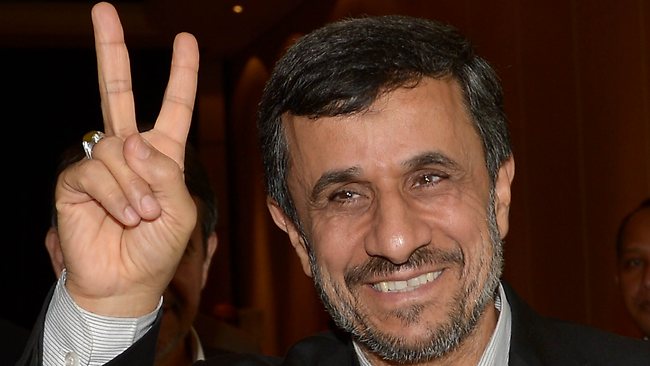CAIRO: Over four days, Cairo ICT 2009 drew ministers, executives and technology groupies from countries as far-flung as Malaysia, flooding the International Conference Center in Nasr City with flatscreen televisions, mobile phones, fiberoptic cables and rows upon rows of computers.
The conference, a huge roadshow devoted to information and communication technology, came to a close yesterday.
Despite a deepening economic crisis, the atmosphere at this year s conference was generally upbeat, with many exhibitors eager to show off new gadgets and services.
Vodafone s massive exhibit, for instance, showed how aggressively the British firm has moved into internet services in recent months. The company s booth included large sections devoted to home, business and mobile internet services.
Over its first nine months, Vodafone s internet services have drawn about 10,000 customers, said Bilal Muhammad, a company representative.
Services for small businesses have been particularly popular during the conference, said Sherif Osman, a tech support specialist.
Though most of Vodafone s business packages include just four email accounts, a petroleum company approached the booth earlier in the day asking for 150 accounts, he said.
The Egyptian government also made a sizeable appearance, with one large exhibit devoted to the Ministry of Communications and Information Technology, and another to the National Telecommunications Regulatory Authority (NTRA), a state regulator.
The NTRA sent representatives to the conference to meet with companies, ensure that they are aware of state rules and help settle disputes with customers, said Hossam Ahmed Safwat, an NTRA engineer.
The agency s biggest challenge today is making sure that Chinese imports into Egypt are of good quality, said Safwat. The Chinese can make the best products in the world, he said. At the same time, they make the worst devices in the world.
In January 2008, the agency strengthened their restrictions on Chinese imports. Poor-quality products had been coming into the country despite rules that obligated importers to submit reports showing that their products complied with European and American standards, Safwat said. When the Egyptian officials discovered that a number of Chinese labs had been issuing reports without actually testing products, the authority began to accept reports only from a group of approved sources.
In another hall, Nera, a Norwegian company, operated a relatively sparse booth. Few customers approached the exhibit and none of the usual glossy brochures and press materials were on display.
Nera is in the business of making microwave radio links, explained Einer Mortensen, an employee of another Norwegian firm who was helping run the Nera exhibit. You could say in a very simply way that it s an electronic cable for transmission of digital signals, he said.
This means that the company provides support for mobile, broadcast and business networks, as well as defense and backbone networks for national governments.
In Egypt, most of Nera s work is with the government, Mortensen said. This is largely the case throughout the Middle East and North Africa, where most states keep tight control over communications networks.
In lieu of attracting new private customers, Mortensen said, Nera set up their ICT booth to show that we are here, that we care about Egypt, and that we are serving Egypt.
Near the back of the main hall, a small booth run by Rad Tech offered an unusual bit of technology – magnetized Neutralizer chips, which the company claims protects mobile phone users from radiation and electromagnetic pollution.
Rad Tech imports the devices from American and German suppliers into Arab countries such as Saudi Arabia and Jordan, charging between LE 120 and 170 per device, said Waleed Ahmed, a salesman for the firm.
Banners around the booth showed images of smiling children with sections of their brain exposed, showcasing the damage supposedly wrought by indiscriminate cell phone use. They are not a good pictures, said Ahmed, gesturing towards them.
The company only recently entered Egypt, explained Ahmed, and he is currently the only agent in the country.
Asked how Egyptians have reacted to the product so far, Ahmed smiled.
So far people think it s strange, he said. [They ask] what is this? How does it work? But, yes, it does work.



